WordPress vs. Paperform: the best platform for a seamless web experience
Discover how WordPress compares to Paperform regarding features and usability. Find out which platform provides the competitive advantage your business deserves.
Get startedSee how Instapage stacks up against the competition
| Feature | Instapage | Other builders |
| Drag-and-Drop Tools | ||
| Conversion-optimized templates | ||
| Manual and AI-powered A/B Tests | ||
| AI content suggestions | ||
| Popups and sticky bars | ||
| Canvas and grid blocks | ||
| Reusable and global elements | ||
| Form and popup builders | ||
| Built-in Heatmaps | ||
| Central analytics dashboard | ||
| Ad-to-page personalization and collections | ||
| Contacts, lists, and email | ||
| Dedicated, full-service CRO experts | ||
| Enterprise-ready platform |
Leading the way in building high-performing landing pages





Why Instapage is the smarter choice for your campaigns
Get everything you need to build, scale, and optimize high-converting landing pages—without coding.
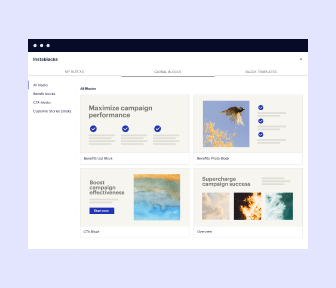
Easier page building without coding
Instapage offers a flexible and seamless page creation experience with a library of 500+ conversion-focused layouts, Instablocks®, a drag-and-drop builder, and AI content generation. With technologies like Thor Render Engine®, you can create on-brand, mobile-responsive landing pages that load quickly and start converting during initial visitor clicks.

More insights — better results
Instapage lets you see in detail how each landing page experience and variation is performing so you can make targeted changes that boost page conversions. Use heatmaps for a better understanding of on-page activities, run A/B tests and AI-assisted experiments, and then track and evaluate results within robust analytics dashboards.

More personalized experiences
Instapage lets you quickly create high-performing landing pages tailored to each of your ad campaigns. Deliver personalized experiences for distinct audiences using dynamic text replacement. Effortlessly align specific advertisements to unique pages with AdMaps. Monitor audience-level metrics using our advanced data tools.
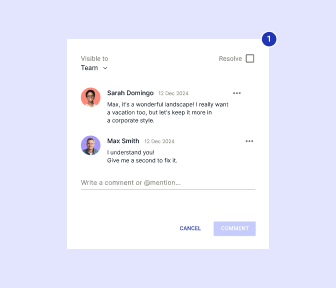
Built-in collaboration
Instapage collaboration capabilities bring your entire team together to speed up the process of landing page review, approval, and launch. No more frustrating and unnecessary revisions or edits scattered across emails. Provide instant feedback, conduct real-time page edits, and securely share your pages with outside stakeholders.
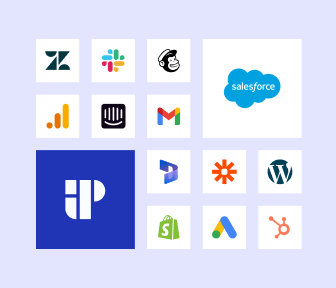
Free up time for your business
Invest time into business growth, not busy work. Launch landing pages faster with reusable forms and templates. Build once, reuse forever.
Explore all integrations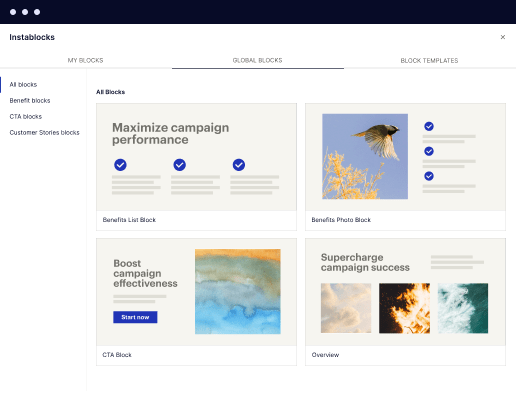
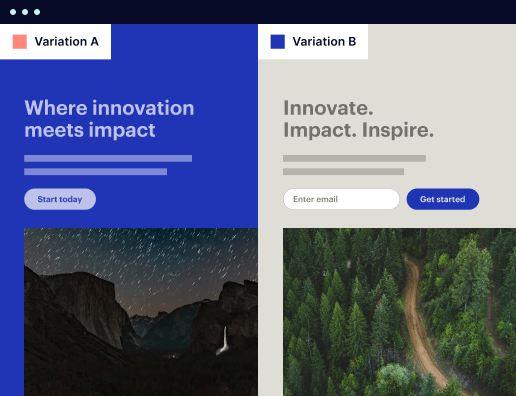
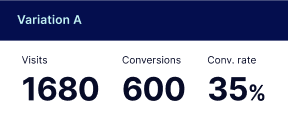


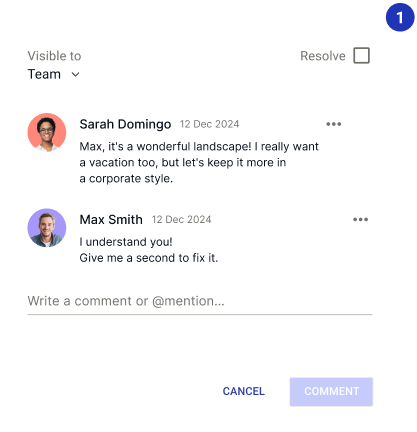

Easier page building without coding
Instapage offers a flexible and seamless page creation experience with a library of 500+ conversion-focused layouts, Instablocks®, a drag-and-drop builder, and AI content generation. With technologies like Thor Render Engine®, you can create on-brand, mobile-responsive landing pages that load quickly and start converting during initial visitor clicks.
More insights — better results
Instapage lets you see in detail how each landing page experience and variation is performing so you can make targeted changes that boost page conversions. Use heatmaps for a better understanding of on-page activities, run A/B tests and AI-assisted experiments, and then track and evaluate results within robust analytics dashboards.
More personalized experiences
Instapage lets you quickly create high-performing landing pages tailored to each of your ad campaigns. Deliver personalized experiences for distinct audiences using dynamic text replacement. Effortlessly align specific advertisements to unique pages with AdMaps. Monitor audience-level metrics using our advanced data tools.
Built-in collaboration
Instapage collaboration capabilities bring your entire team together to speed up the process of landing page review, approval, and launch. No more frustrating and unnecessary revisions or edits scattered across emails. Provide instant feedback, conduct real-time page edits, and securely share your pages with outside stakeholders.
Free up time for your business
Invest time into business growth, not busy work. Launch landing pages faster with reusable forms and templates. Build once, reuse forever.
Explore all integrationsGet started with Instapage in a few steps
-
Create your Instapage account
Start with Instapage by signing up via Google or your email. You'll get access to a free 14-day trial to discover Instapage capabilities. Feel free to cancel anytime during the 14-day trial if you decide that our product is not suitable for your business. -
Build and personalize your page
Create your first landing page from scratch or choose a template from 500+ customizable layouts. Use the drag-and-drop builder to add page elements, fonts, and backgrounds, refine content with AI, or add custom HTML, Javascript, and CSS. -
Review and make edits
Collaborate on page designs and streamline review processes. Invite your team members and stakeholders to review, edit, and provide feedback on your landing page. Collaborate knowing your page is confidential and only accessible to authorized users. -
Publish and track page performance
Publish your page to a domain or custom URL. Connect your pages to the ads you've created and track page performance within the analytics dashboard, run A/B tests and AI experiments, analyze results, and continuously optimize your landing page to maintain high conversions.
WordPress vs. Paperform: The Ultimate Clash You Didn’t See Coming
In the bustling world of online marketing, choosing the right platform to kickstart your campaigns can feel like stepping into a boxing ring. With countless landing page builders available, the choices can overwhelm even the most seasoned marketers. WordPress and Paperform are two heavyweights that grab attention with their unique features and vibrant functionalities. WordPress, known for its versatility, has long been the go-to platform for website creation and content management. Paperform, on the other hand, makes its mark with a fresh approach to form and landing page creation that feels both user-friendly and innovative. But wait! While these two giants dominate the spotlight, there's a fierce competitor waiting in the wings—Instapage. As we dive deeper into this matchup, we'll explore the intricate details that separate these platforms and identify which ones stand out in various aspects of functionality and user experience.
Introducing Our Competitors: The Titans of Digital Space
Let’s set the stage by introducing our contenders. WordPress, revered as the established champion of website building, caters to millions of users with its robust ecosystem that houses thousands of plugins and themes. From blogs to eCommerce sites, WordPress can handle a mix of needs, making it a flexible contender in the digital marketing world. On the opposing corner, Paperform emerges as a compelling challenger known for its intuitive design and streamlined building process. It specializes in converting forms into interactive landing pages that engage users and simplify data collection. Both platforms have their unique strengths, but what's truly intriguing is how they stack up against one another and whether the newcomer, Instapage, outperforms them both. As we pit these titans head-to-head, audiences will find themselves immersed in the nitty-gritty of features and usability, all while considering the game-changing capabilities of Instapage that might just redefine their marketing strategy.
Feature Showdown: What Each Platform Brings to the Table
As the bell rings for round one, let’s unpack the key features each platform offers. WordPress brings a versatile toolbox equipped with plugins, themes, and SEO capabilities that can be tailored to fit practically any requirement. Paperform, however, dazzles with its straightforward approach—allowing users to create beautiful, engaging forms with minimal effort. While both platforms show up ready for battle, it’s worth noting that Instapage is rehearsing its show-stopping entrance, prepared to win over users with capabilities specifically designed for landing pages. With WordPress's extensive feature set coupled with Paperform's elegant simplicity, each contender claims its territory adeptly. Yet, the stakes are high as they vie for the attention of digital marketers searching for the solution that fits best within their strategies.
The Usability Factor: User Experience Under the Microscope
User experience can make or break a platform. In this round, we're shining a light on how each contender addresses the needs of its users, from those just starting out to seasoned pros. WordPress may appear to have a steeper learning curve; however, its depth offers endless creative possibilities once the ropes are learned. Picture this: While you’re picking themes and building pages, you're more on an adventure than a plain learning process! Meanwhile, Paperform insists on simplicity, beginning with pre-defined templates and drag-and-drop features designed to encourage user engagement right from the start. With this contrast in usability, potential users need to consider their comfort levels with technology and how much complexity they’re willing to embrace. And don't forget about Instapage waiting anxiously with a user-friendly interface that streamlines any marketing campaign without the confusion.
WordPress Features That Shine Bright
- An extensive library of themes and plugins for versatile customization.
- SEO-friendly features vital for improving site visibility.
- Robust community support and forums for troubleshooting.
- Comprehensive analytics options to track website performance.
- Integration capabilities with popular marketing tools such as Mailchimp.
The Alluring Features of Paperform
- Easy template creation for forms and landing pages.
- Customizable design options that match your branding.
- Built-in payment processing for eCommerce functionalities.
- User-friendly drag-and-drop interface that reduces setup time.
Common Strengths Shared by Both Platforms
- Responsive designs for enhanced mobile usability.
- Integration with third-party tools for expanded functionality.
- AI-driven capabilities for smarter marketing automation.
- Effective analytics to monitor performance trends.
- Strong security features to protect user data.
- Versatile solutions adaptable to various business needs.
As the dust settles in this round, it’s clear both WordPress and Paperform bring strong offerings to the arena. However, Instapage is subtly asserting its position as the top contender by specializing solely in landing pages, setting itself apart from the general offerings of our two competitors.
Performance Metrics: Speed and Responsiveness Unleashed
When it comes to performance, speed is everything. In the digital world, slow-loading pages can lead to high bounce rates faster than you can say ‘performance metrics.’ WordPress boasts powerful caching solutions that can significantly enhance loading speed, but users must manage this functionality actively. Paperform follows close, assuring that forms load swiftly to keep user interaction seamless. Imagine slow-loading pages being like trying to stir molasses on a chilly day—you simply can't afford that in the fast-paced realm of online marketing. For the best of both worlds, Instapage steps in with its optimized landing pages that promise lightning-fast load times, helping marketers keep prospects engaged. As we analyze performance, marketers will want to prioritize these metrics that could influence user satisfaction and conversion rates.
Support Systems in Place: Who's Got Your Back?
Support can be a game-changer during your digital marketing journey. Each platform offers its own array of support channels, ensuring users won't feel like they’re navigating the waters alone. WordPress shines with an extensive community as its backbone, where users can turn to forums, blogs, and tutorials for guidance. Paperform, while smaller in community size, offers commendable direct support and resources such as live chat, helping solve users' problems more promptly. Think of these support teams as your trusty sidekicks, always ready with a word of advice or a quick solution to a sticky situation. Meanwhile, Instapage capitalizes on its customer support, offering guided onboarding to smooth the learning curve for newcomers. It’s a crucial aspect that allows users of any experience level to get up to speed without missing a beat.
Pricing Strategy: How Do They Stack Up?
WordPress Pricing Strategy Advantages
- Open-source, with no mandatory cost to use the software.
- A wide range of hosting options at various price points.
- Cost-effective solutions driven by a mix of free and paid plugins.
Paperform Pricing Strategy Advantages
- Transparent pricing structure with no hidden fees.
- Affordable subscriptions, including a free trial for experimentation.
- Flexible payment plans allowing for scalability as needs grow.
- Designed to provide excellent value for the features offered.
As we examine the pricing strategies, WordPress's often minimal upfront costs can lure many users yearning for budget-friendly options. Paperform counters with a clear pricing model that ensures users know exactly what they are signing up for. However, as marketers weigh these options, they should look towards Instapage, which brings substantial value to the table through its offerings designed explicitly for landing pages, positioning itself as the most efficient option for conversion-focused campaigns.
Let’s take a transparent look at the pricing plans for both platforms. WordPress may provide free access to its basic functionalities, but customization costs can sneak up as users dive deeper. Paperform, conversely, displays its pricing clearly, helping users gauge their investment accurately. Sometimes, the unexpected surprises come with the lower-cost options—what you see isn’t always what you get.
And Here Comes Instapage…
As we wrap up this clash of titans, let’s shine a spotlight on Instapage, the underdog that has quietly been capturing hearts. Instapage emerges as that mentor—prepared to align businesses with a specific focus on landing pages. With impressive A/B testing capabilities, high-converting templates, and an intuitive drag-and-drop builder, it offers unique value propositions that truly enhance marketing strategies. Users will find that its specialized tools can lift their campaigns to new heights, even while WordPress and Paperform serve their own niches. Ultimately, the secret weapon for many businesses lies within Instapage’s unique offerings, which might just be the ultimate upgrade you didn’t know you needed. So, why not explore further? There’s a world of potential waiting for you that could transform your marketing efforts.
In conclusion, understanding the intricacies of your business needs and the features of these platforms allows for informed decisions. The road to success is paved with knowledge and the right tools. Don't shy away from investigating Instapage as an exceptional solution tailored to fit modern marketing challenges, paving the way for businesses seeking simplicity and effectiveness in their journeys.










